MercoPress. South Atlantic News Agency
Tag: South Atlantic Environmental Research Institute (SAERI)
-
Tuesday, January 17th 2023 - 10:49 UTC
Falklands share the collective responsibility to tackle the climate crisis
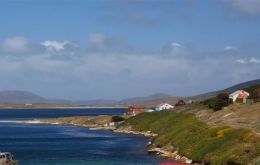
By MLA Peter Biggs (*) – In the Falkland Islands, the foundations of our livelihoods are reliant on our environment - fishing, agriculture, tourism - and these key sectors would not exist without healthy ecosystems.
-
Monday, December 5th 2022 - 10:28 UTC
Falklands' science celebrates ten years of SAERI and international academic recognition

Last Friday night Falklands Governor Alison Blake CMG hosted a reception at Government House to celebrate the founding ten years ago of the South Atlantic Environmental Research Institution, SAERI, a thriving independent institute-undertaking numerous projects and research in the Islands and across the world.
-
Thursday, December 1st 2022 - 09:51 UTC
Falklands paper on climate change and oceans' biodiversity accepted at the COP 27 summit in Egypt

The Falkland Islands presented a paper on climate education to the COP 27 summit meeting in Egypt which was accepted as part of a presentation to a hub on climate change consequences and possible solutions. Marine Scientist Dr Narissa Bax from the South Atlantic Environmental Research Institute (SAERI), made the presentation during her attendance of COP27.
-
Wednesday, November 23rd 2022 - 09:37 UTC
Reappointments made to the Marine Management Organization Board

Solicitor, Falkland Islands former Attorney General and SAERI Chair Peter Judge MBE, together with David Lyall have been reappointed to the Board of the Marine Management Organization. MMO has a wide range of responsibilities, which include implementing plan-led marine management, licensing marine works, and managing UK fishing fleet capacity and UK fisheries quotas.
-
Friday, March 19th 2021 - 15:09 UTC
Falkland Islands Government gives nod to public consultation on Marine Management Areas
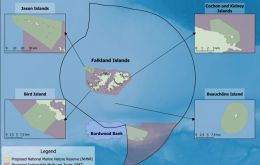
The Falkland Islands Government’s Executive Council has approved the launch of a public consultation on a series of proposed Marine Management Areas (MMAs) in Falklands waters, according to documents published this week.
-
Friday, February 15th 2019 - 07:46 UTC
Falklands using drones to create fine scale models of minefields
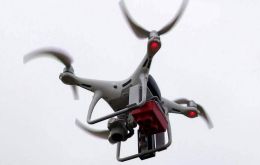
The minefields around the Falkland Islands capital, Stanley, dating back to the South Atlantic conflict, have remained largely untouched for most of nearly 35 years, due to the restrictions in place around access to the minefields. Over this time, they have become a haven for Falkland’s wildlife.
-
Friday, August 11th 2017 - 20:26 UTC
Falklands' SAERI lead in Ascension Island tropical marine research

The Journal of Marine Biological Association of the United Kingdom (*) has this month released a special issue focussing on Ascension Island’s marine biodiversity. Falklands' based SAERI Director Dr Paul Brickle explained that 20 papers reported on the results of 202 sampling events, comprising a mixture of quantitative SCUBA surveys involving belt transects for fish and mobile fauna and quadrat photography for sessile fauna.
-
Thursday, August 10th 2017 - 07:09 UTC
Falklands' hosts Montserrat top official as part of UK's Territory to Territory Partnership

A leading Montserrat official is visiting the Falkland Islands for a week as part of a Territory to Territory partnership initiative between the two islands that was initiated last year. The Caribbean island British Overseas Territory Minister of Agriculture, Trade, Lands, Housing, and Environment, Claude E.S. Hogan arrived on the Falklands on the 7th August 2017.
-
Tuesday, April 11th 2017 - 06:14 UTC
Falkland Islanders asked on proposals to recommend Marine Management Areas
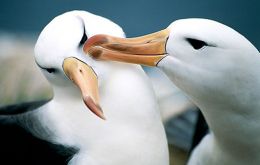
Falkland Islanders are being asked to comment on proposals to recommend three Marine Management Areas (MMAs) to the Falkland Islands Government (FIG). These areas include some of the Falklands most pristine and vulnerable marine environments such as around Beauchêne Island and the Jason Islands archipelago, and include globally important populations of the Black-Browed Albatross and the Rockhopper penguin.
-
Friday, March 24th 2017 - 11:22 UTC
Falklands/Honduras to share experiences in marine coastal resources management
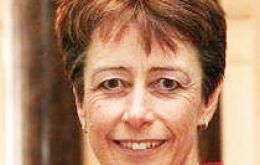
Honduras and UK South Atlantic British Overseas Territories, mainly Falkland Islands are to share scientific experiences and develop potential projects that could enhance the Central American country's management of its marine coastal resources. With this purpose the Director of the South Atlantic Environmental Research Institute (SAERI), Dr Paul Brickle, visited Roatán and Tegucigalpa last week.
